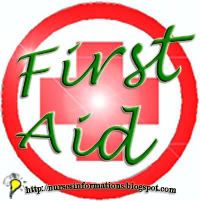Tourette’s syndrome (TS), a neurologic disorder is characterized by persistent tics—involuntary movements and vocalizations.
TS affects 1:10 children/1,000 (estimated)
3 boys:1 girl are affected
Onset of symptoms: 7-year-old
Peak of symptoms: 8 to 12-year-old
Decline of symptoms: steadily at 20-year-old
Distinguishing Characteristics:
1. Repetitive motor
2. Vocal tics - differ in severity & duration
*grunting
*barking
*sniffing
*throat clearing
(other common kinds of tics: eye blinking, facial grimacing, shoulder shrugging, and head or shoulder jerking)
Extreme forms:
1. Tics that result in self-harm (punching oneself in the face)
2. Vocal tics
*coprolalia (uttering swear words)
*echolalia (repeating others’ words or phrases)
Coexisting Neurobehavioral Conditions:
1. Attention-deficit hyperactivity disorder
2. Obsessive-compulsive behaviors
*This may exacerbate the symptoms of TS and impair a child’s ability to learn. If successfully treated, these may diminish tic severity.
*TS doesn’t impair a person's intelligence.
A diagnosis:
1. based on patient history
2. based on clinical assessment
*no tests are diagnostic for TS
Formal criteria for a diagnosis of TS:
* multiple motor and at least one vocal tic
* a waxing and waning course with decreasing severity over time
* tic symptoms persisting for at least 1 year
* symptom onset before age 21
* no precipitating illnesses (such as encephalitis or stroke) or precipitating drugs (such as stimulants, antiepileptic drugs, levodopa, or haloperidol)
* observation of tics by a medical professional.
Patients with TS:
*Aren’t significantly disabled by their symptoms
*Don’t require medication
-may be indicated if the symptoms affect the persons functioning
-They only reduce the severity and do not eliminate symptoms
-must be monitored closely for adverse reactions
Management of mild symptoms:
1. Education
2. Counseling
3. Behavioral techniques
*MOST SUCCESSFUL BEHAVIORAL INTERVENTION: Habit reversal (focuses on techniques to replace the tic with an alternate behavior)
Management for severely disabled patients:
*experimental surgical interventions (deep brain stimulation)
Tier One Drugs (for mild to moderate symptoms):
1.Clonidine
2 Clonazepam
3 Guanfacine
Main Adverse Reactions:
1. Sedation
2. Irritability.
Tier Two Drugs (for severe symptoms):
1. Haloperidol
2. Pimozide
3. Risperidone
4. Fluphenazine
Main Adverse Reactions:
1. Sedation
2. Weight gain
3. Extrapyramidal symptoms
* tardive dyskinesia (involuntary movements, usually of the mouth, lips, and tongue)
* tremors
* rigidity
* akathisia (physical restlessness)
* acute dystonia (muscle contractions)
*Refer patients and their families to support groups and Web sites because symptoms can make patients feel socially isolated and self-conscious. TS can strain family relationships knowing that other families are having the same experiences.
Thursday, February 7, 2008
Tourette’s syndrome (TS)
DISCLAIMER
Disclaimer for Blogger
If you require any more information or have any questions about our site's disclaimer, please feel free to contact us by email at lrroldanrn07@gmail.com
Disclaimers for Nursesinfosite
All the information on this website - https://nursesinforsite.blogspot.com - is published in good faith and for general information purpose only. Nursesinfosite does not make any warranties about the completeness, reliability and accuracy of this information. Any action you take upon the information you find on this website (Nursesinfosite), is strictly at your own risk. Nursesinfosite will not be liable for any losses and/or damages in connection with the use of our website. Our Disclaimer was generated with the help of the Disclaimer Generator and the Disclaimer Generator.
From our website, you can visit other websites by following hyperlinks to such external sites. While we strive to provide only quality links to useful and ethical websites, we have no control over the content and nature of these sites. These links to other websites do not imply a recommendation for all the content found on these sites. Site owners and content may change without notice and may occur before we have the opportunity to remove a link which may have gone 'bad'.
Please be also aware that when you leave our website, other sites may have different privacy policies and terms which are beyond our control. Please be sure to check the Privacy Policies of these sites as well as their "Terms of Service" before engaging in any business or uploading any information.
Consent
By using our website, you hereby consent to our disclaimer and agree to its terms.
Update
Should we update, amend or make any changes to this document, those changes will be prominently posted here.






























0 comments:
Post a Comment